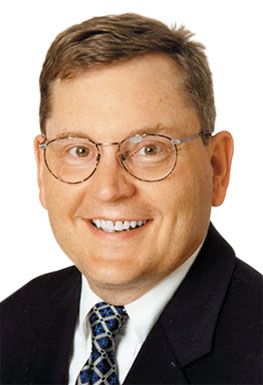- Case-Based Roundtable
- General Dermatology
- Eczema
- Chronic Hand Eczema
- Alopecia
- Aesthetics
- Vitiligo
- COVID-19
- Actinic Keratosis
- Precision Medicine and Biologics
- Rare Disease
- Wound Care
- Rosacea
- Psoriasis
- Psoriatic Arthritis
- Atopic Dermatitis
- Melasma
- NP and PA
- Skin Cancer
- Hidradenitis Suppurativa
- Drug Watch
- Pigmentary Disorders
- Acne
- Pediatric Dermatology
- Practice Management
- Prurigo Nodularis
- Buy-and-Bill
Publication
Article
Dermatology Times
In-office Rx dispensing fills care gap
Author(s):
Although prescribers who provide in-office dispensing must satisfy applicable state and other requirements, a recent ruling against Allergan's attempt to shut down Prescriber's Choice appears to pave the way for expansion of these services, according to Wm. Philip Werschler, M.D.
Although prescribers who provide in-office dispensing must satisfy applicable state and other requirements, a recent ruling against Allergan's attempt to shut down Prescriber's Choice appears to pave the way for expansion of these services, according to Wm. Philip Werschler, M.D. (pressmaster - stock.adobe.com)

Dr. Werschler

Although prescribers who provide in-office dispensing must satisfy applicable state and other requirements, a recent ruling against Allergan's attempt to shut down Prescriber's Choice appears to pave the way for expansion of these services, according to Wm. Philip Werschler, M.D.
Since the onset of healthcare reform, in-office dispensing of prescription medications has exploded, says Dr. Werschler, a Spokane, Wash.-based dermatologist in private practice and a clinical teaching professor at the University of Washington.
Currently, Dr. Werschler says, a sizeable number of the approximately 14,000 dermatologists practicing in the United States utilize Prescriber's Choice dispensing services, as he does. Such services grew out of the Federal Food, Drug and Cosmetic Act Section 503B, which was issued after the New England Compounding Center (NECC) tragedy. As a result of contaminated NECC compounding, more than 800 patients contracted meningitis infections starting in 2012, resulting in 76 deaths.
In revisiting compounding regulations, says Dr. Werschler, who presented on this topic at Fall 2018 Cosmetic Bootcamp, the new section of the law known as the Drug Quality and Security Act created new opportunities for physicians. Chief among the changes is the ability to order from an FDA-registered 503B outsourcing facility. This new entity type is required to follow Current Good Manufacturing Practices (CGMP). "Ultimately," he says, "Congress and the FDA recognized the need for compounded medications but insisted that they be made in a quality environment."
The new law allows physicians to keep compounded inventory on hand, rather than having to write individualized prescriptions that each patient provides to a compounding pharmacy. "The FDA essentially allowed physician offices to maintain office stock." Although FDA guidance does not specify how much, he adds, dermatologists generally interpret this guidance as a 90-day supply. "That was a significant fundamental change in how a dermatology office operates."
In-Office Dispensing vs Pharma
The new legal landscape underlies both the explosion in physician dispensing, Dr. Werschler says, and the pharmaceutical industry's associated concerns. In 2017, Allergan sued Prescriber's Choice and its affiliated FDA-registered 503B outsourcing facility, Sincerus, both based in Pompano Beach, Fla., claiming that these companies were selling unapproved drugs under the guise of compounding.
In January, a California federal judge ruled against Allergan, saying that Sincerus is permitted to operate as an outsourcing facility provided it complies with FDA regulations and guidance, according to published accounts. "That's the big lawsuit that other pharmaceutical companies were watching. And I don't see any other impediments," says Dr. Werschler. Had Allergan prevailed, he says, drug manufacturers most likely would have filed similar lawsuits against outsourcing facilities.
"Now that we have clarity from a legal perspective, I believe you'll see a lot more of my colleagues begin to utilize the services of Prescriber’s Choice and Sincerus. I would also expect to see more outsourcing facilities become registered with the FDA, and that is going to be a third pathway, filling the gap between a traditional pharmacy and a pharmaceutical manufacturer."
Using an outsourcing facility also ensures that patients get exactly what their dermatologists prescribe, Dr. Werschler says. According to Prescriber's Choice, more than 70% of patients who encounter prior authorization (PA) get substitute medications.
"We want our patients to get the medicines that we want them to have, expeditiously and affordably. And we want to prescribe what, in our belief as the dermatologist, is going to be the best medicine for them as an individual," he says.
Outsourcing facilities do not tell physicians what to use their products for, says Dr. Werschler. "A compounded medication doesn't have a label with an indication. That is up to the prescribing doctor."
Resurrecting Compounding
The growth in use of outsourcing facilities returns dermatology to its roots, adds Dr. Werschler. When he started practicing 28 years ago, few off-the-shelf dermatology medications existed, he says. "Dermatologists were all master compounders; it was part of our training. We'd write a compounding formula on a prescription sheet." Such recipes gave rise to dermatology staples ranging from Kligman’s formula to metronidazole capsules dissolved into a vehicle, says Dr. Werschler.
Compounding largely disappeared through the 90s and early 2000s as pharmacists gravitated toward dispensing ready-made products. But under Section 503B, Dr. Werschler says, highly educated Pharm.D.’s began teaming with dermatologists to resurrect largely forgotten compounding formulations.
"Prescriber's Choice worked with dermatologists and said, 'we have the ability to assist you in developing customized formulas. We will enable the doctor to provide these at the time of the visit at a price point the patient can afford.'"
Many commercially available dermatologic drugs may have undesirable side effects; however, says Dr. Werschler, drug costs are often a larger obstacle to patient adherence. For example, many popular commercially available topicals list for $500 to $700 or more (of which patients might have a $100 co-pay) through insurance, says Dr. Werschler. "But a customized version better tailored to my patient available through Prescriber's Choice and Sincerus costs patients $50 to $60 in the Northwest. Patients get their medications faster, more easily and frequently less expensively, at the point of service. It's disruptive in exactly the same way that Uber and Airbnb have been disruptive. Patients love it."
At the same time, Dr. Werschler says he supports and is sympathetic towards the pharmaceutical industry and the regulations under which it operates, and he blames mainly insurers and pharmacy benefit managers (PBMs) for escalating drug prices.
Many combination products available through FDA 503B-registered sources are not available from traditional drug developers because commercially available drugs are limited to the claims approved by the FDA through the new drug application (NDA) and abbreviated new drug application (ANDA) approval process.
As for prescriber logistics, pharmacies are regulated not by the FDA, but by state pharmacy boards, each of which may have its own regulations. Generally, these rules require dispensing physicians to track (which patient got which lot number, for example, in case of a recall), manage, secure and document their inventory. "You have to treat this in the same way that a pharmacy would treat its dispensing. You're held to the same standard."
To meet state requirements, Dr. Werschler says, Prescriber's Choice offers software and training. "Our office has protocols for the ordering, tracking and inventory control, so that we're compliant with our state guidelines. It's not fundamentally different than dispensing OTC cosmeceuticals, but it gets a little more involved."
Dr. Werschler's staff loves Prescriber's Choice, he added. "Every week, it gets worse with denials, chart note requests, step edits (even for generics), pre-authorizations and excessive co-pays. This isn't just for biologics - this can even be for acne and rosacea creams. We now have a full-time medical assistant who works the 'denial desk.'" Since starting with in-office dispensing, however, Dr. Werschler estimates his practice has reduced the PA time and cost burden on topical products between 50% and 75%.
Disclosures:
Dr. Werschler dispenses Prescriber's Choice but has no ownership interest in the company. He did not receive compensation for the lecture or this article, which also includes comments from a January 23 phone interview with Dr. Werschler.
References:
W Philip Werschler MD. "Make Dispensing Work for You: Don't Let It Create More Work," Fall Cosmetic Bootcamp. Napa, Calif. October 2018.






